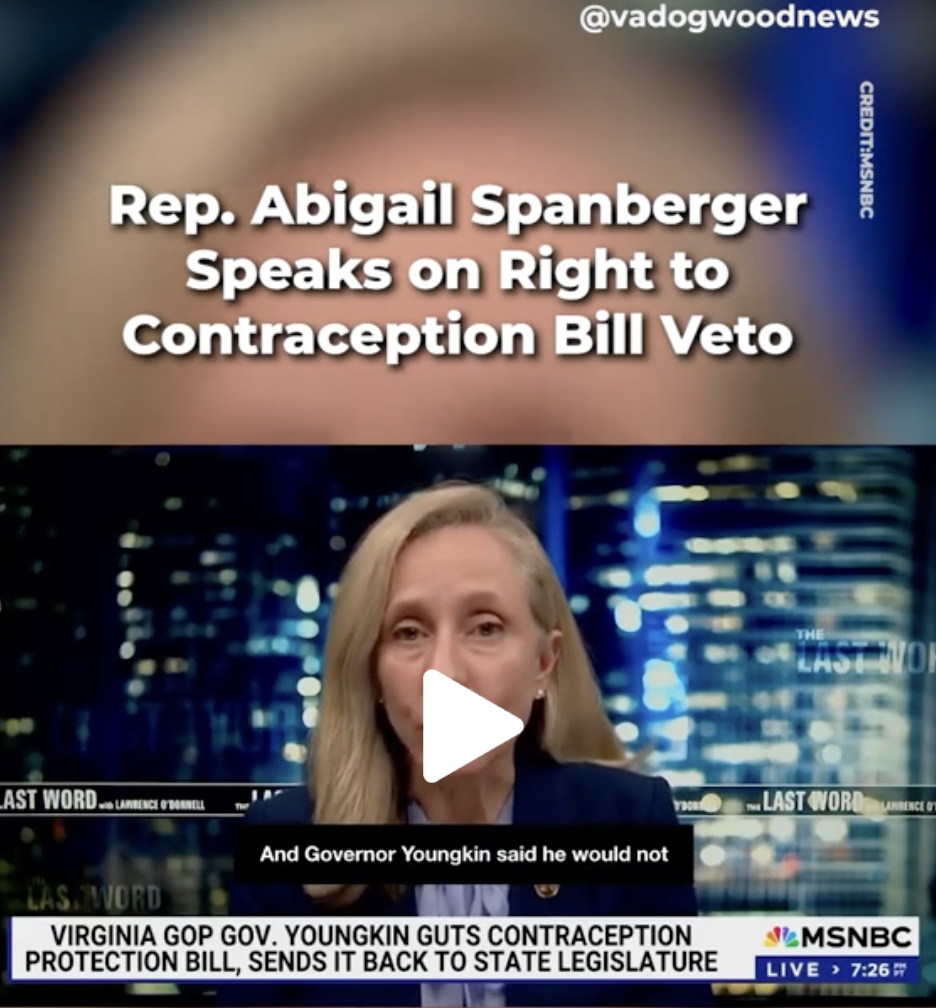
FILE - Del. Marcia 'Cia' Price, D-Newport News, looks at the vote tally board during the House session at the Capitol Wednesday, Feb. 19, 2020, in Richmond, Va. Virginia Democrats who control the state Legislature are advancing legislation that aims to protect access to a wide range of contraception, something they say should not be taken for granted after the U.S. Supreme Court's decision overturning Roe v. Wade. (AP Photo/Steve Helber, File)
After campaigning on abortion rights in order to win back control of the House of Delegates in November, Virginia Democrats used this year’s 60-day legislative session to reject anti-abortion legislation and push for further safeguards to reproductive rights in the commonwealth, where abortion is currently legal until fetal viability, which is usually around 23-24 weeks.
Now that session has wrapped up, focus has shifted to Republican Gov. Glenn Youngkin, who is now tasked with acting upon over 1,000 pieces of legislation lawmakers have sent to him; they will reconvene on April 17 to consider the governor’s initial amendments and vetoes.
Here’s where reproductive rights legislation stands in Virginia now that session has ended.
Protect Virginia’s Health Workers Board of Medicine (Senate Bill 716 & House Bill 519)
Introduced by Democratic Sen. Jennifer Caroll Foy and Democratic Del. Candi Mundon King, Senate Bill (SB) 716 and House Bill (HB) 519 would prohibit the Virginia Board of Medicine from taking disciplinary action against medical professionals who provide legal abortion care to out-of-state patients.
Both bills passed in their respective chambers, and vice versa. Youngkin has until April 8 to either sign, veto, or recommend amendments to these bills.
Contraceptive Equity Act (Senate Bill 238 & House Bill 819)
On Feb. 9, the Virginia House of Delegates passed House Bill 819, also known as the Contraceptive Equity Act, in a bipartisan vote of 65-31. The Senate passed the House version of the bill on March 5.
Also introduced by Del. Candi King, HB 819 would address critical issues surrounding contraceptive accessibility by eliminating certain copays, cost-sharing requirements, reimbursement requirements, and coverage delays.
The Senate companion bill passed on Feb. 6 in a 24-15 vote, but is now effectively dead, as the Senate failed to consider the bill by its March 8 deadline.
Gov. Youngkin has proposed a religious exemption to HB 819, which would “ensure that non-governmental plan sponsors with sincerely held religious or moral beliefs are not required to provide insurance coverage for contraception in accordance with existing federal and state law,” according to his office.
Lawmakers will consider Youngkin’s proposed amendment on April 17.
Menstrual Data Privacy (Senate Bill 16, House Bill 78)
Companion bills, SB 16 and HB 78 would prohibit search warrants or subpoenas from being issued for menstrual data that’s stored on third-party apps and other digital services.
The bills were introduced by Democratic lawmakers Sen. Barbara Favola and Del. Vivian Watts respectively.
Both bills passed in their respective chambers, and vice versa. Youngkin has until April 8 to either sign, veto, or recommend amendments to these bills.
Extradition Prohibition, Reproductive Health Services (Senate Bill 15 & House Bill 1539)
House Bill 1539, introduced by Democratic Del. Marcus B. Simon, would establish legal protections for patients who travel to Virginia to receive abortion care from states where that care is not legal. Under HB 1539, patients could not be extradited and criminalized by another state where reproductive health services are banned.
Senate Bill 15, meanwhile, would prohibit Virginia from extraditing commonwealth residents charged by other states with violating their abortion laws.
Both bills passed in their respective chambers, and vice versa. Youngkin has until April 8 to either sign, veto, or recommend amendments to these bills.
Total Abortion Ban (House Bill 1364) and Use of Public Funds in Abortion Care (House Bill 404)
In a bipartisan 8-0 vote on Feb. 7, a subcommittee rejected House Bill 1364, a bill from Republican Del. Timothy Griffin, which would have banned abortion in all cases except to save the life of the mother.
Virginia Democrats also rejected House Bill 404, another bill from Del. Griffin.
The bill would have further restricted the already limited circumstances in which public funding can be used to provide abortion services. It would have also prohibited state funding from going to any hospital or facility where abortion care is provided. The bill also lacked exemptions for cases of rape, incest, severe fetal abnormalities, or when the mother’s life is at risk.
In a rare procedural move, House Democrats called for HB 404 to be put to a floor vote last month in an effort to force every House member to go on record on the issue. Every Republican but one voted against the bill, including Griffin himself.
Prohibition on Surrogacy Brokers (House Bill 110)
Last week, Gov. Youngkin vetoed House Bill 110, which would have repealed the prohibition on for-profit surrogacy brokers who connect aspiring parents with women willing to carry a pregnancy on their behalf.
Proponents of the bill said that the prohibition only serves to create fear surrounding surrogacy by threatening criminal penalties.
Lawmakers will reconvene on April 17 to consider the governor’s veto. Although Democrats have the majority in both chambers, they are short of the two-thirds votes necessary to override Youngkin’s veto.
Politics

Biden administration bans noncompete clauses for workers
The Federal Trade Commission (FTC) voted on Tuesday to ban noncompete agreements—those pesky clauses that employers often force their workers to...

Democratic shakeup in Virginia primaries for governor, lieutenant governor
Richmond Mayor Levar Stoney quit his bid for governor and jumped into the race to be the Democratic nominee for lieutenant governor. The race for...
Local News

The zodiac signs of 12 iconic women offer insight into their historic accomplishments
Zodiac signs can tell you a lot about someone’s personality. Whether they’re an earth, water, air, or fire sign, these 12 categories (which are...

Virginia verses: Celebrating 5 poetic icons for National Poetry Month
There’s no shortage of great writers when it comes to our commonwealth. From the haunting verses of Edgar Allan Poe, who found solace in Richmond's...





